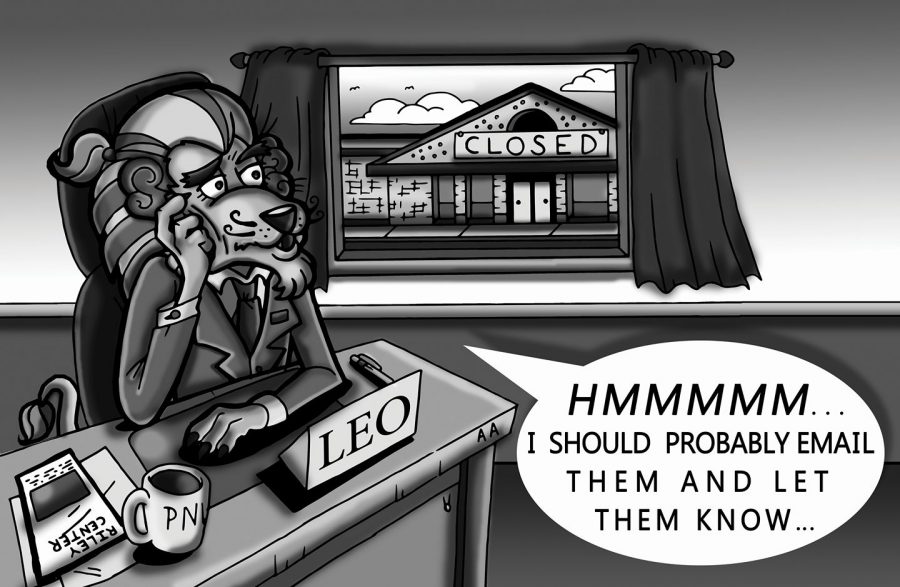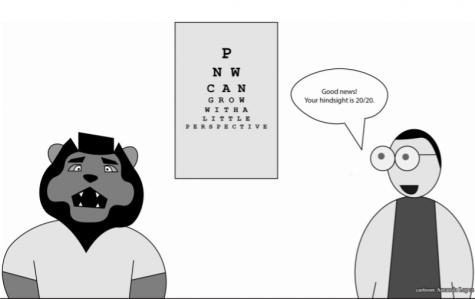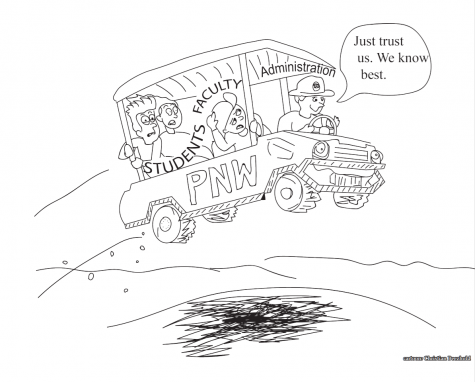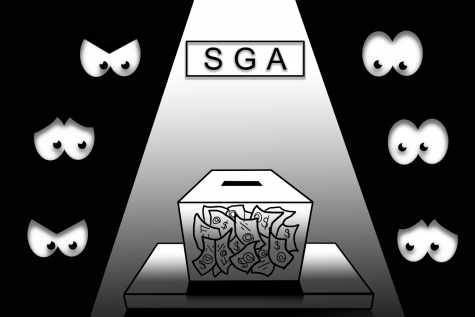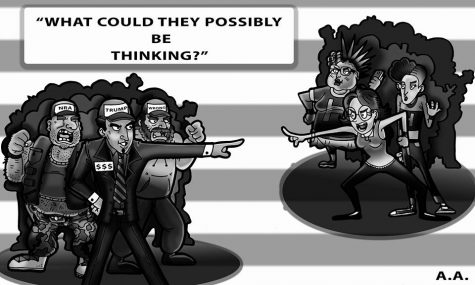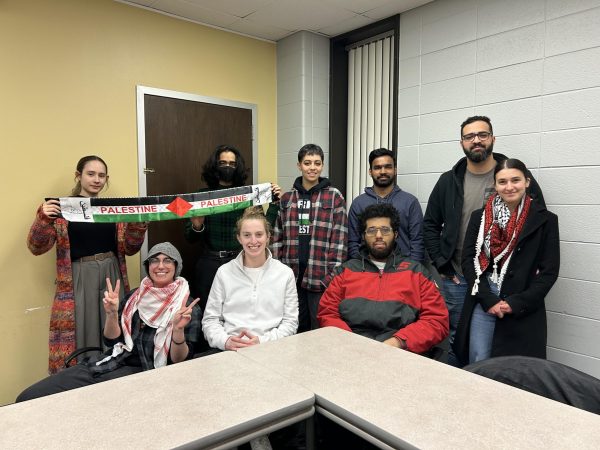Editorial: PNW’s unification culture
Since the beginning, unification has created a culture where the administration reveals news to the affected parties at the last second.
Most recently, the administration announced that the Charlotte R. Riley Center will be closing at the end of the semester. This decision was made without speaking with members of the Department of Behavioral Sciences or consulting them about any possible alternatives.
On Feb. 26, 2014, Thomas Keon, chancellor of the former PUC, and James Dworkin, chancellor of the former PNC, sent out a student- and faculty-wide email announcing that the Hammond and Westville campuses would be unifying their administrations. The email also read that later that day, the two chancellors would meet at both campuses to answer any questions students and faculty might have. Students and faculty members had no idea that unification was a possibility, let alone that it was happening, and they were expected to attend this meeting and come up with questions hours after finding out that unification was a thing. From the very start of unification, the administration has been making decisions without consent and discussion from students and faculty members.
In January of 2016, the PUC Athletic Department accepted the invitation on behalf of the Hammond and Westville campus to enter the Great Lakes Intercollegiate Athletic Conference, a Division 2 conference. The decision was made to accept the invitation without discussing the matter with either campus’s Faculty Senate. The Westville campus’s Faculty Senate was so outraged at this lack of transparency that they passed a senate document asking that the invitation be suspended.
This past March, classes prior to 1 p.m. were cancelled so that students could attend Founder’s Day at the Westville campus. This decision was made and sent to faculty members and students three days prior to Founder’s Day, giving faculty members little time to rearrange their class schedules for the rest of the year. This idea was first proposed at the December Faculty Senate meeting and was strongly opposed, but the administration went through with it anyway. From the start of communication, we have seen a pattern where the university has made decisions that affect curriculum without faculty input. It has become the culture of PNW, and it is not working.
Whether or not these decisions benefited the university as a whole in the long run, the fact remains that decisions were made that drastically affected faculty members, and faculty was not allowed a voice. Our country has a system of checks and balances which keeps the powers that be from making decisions without going through proper channels. The administration of PNW is making decisions and then listening to feedback after. It’s understandable that the administration wants to get things done quickly and efficiently, especially now that the university is facing an $8 million deficit, but thus far the only thing their actions are doing is angering faculty members. Right now, many faculty members feel as though they no longer get a say in what happens in matters of curriculum. If this culture continues, faculty will continue to be kept out of the loop, and students will suffer as a result.


